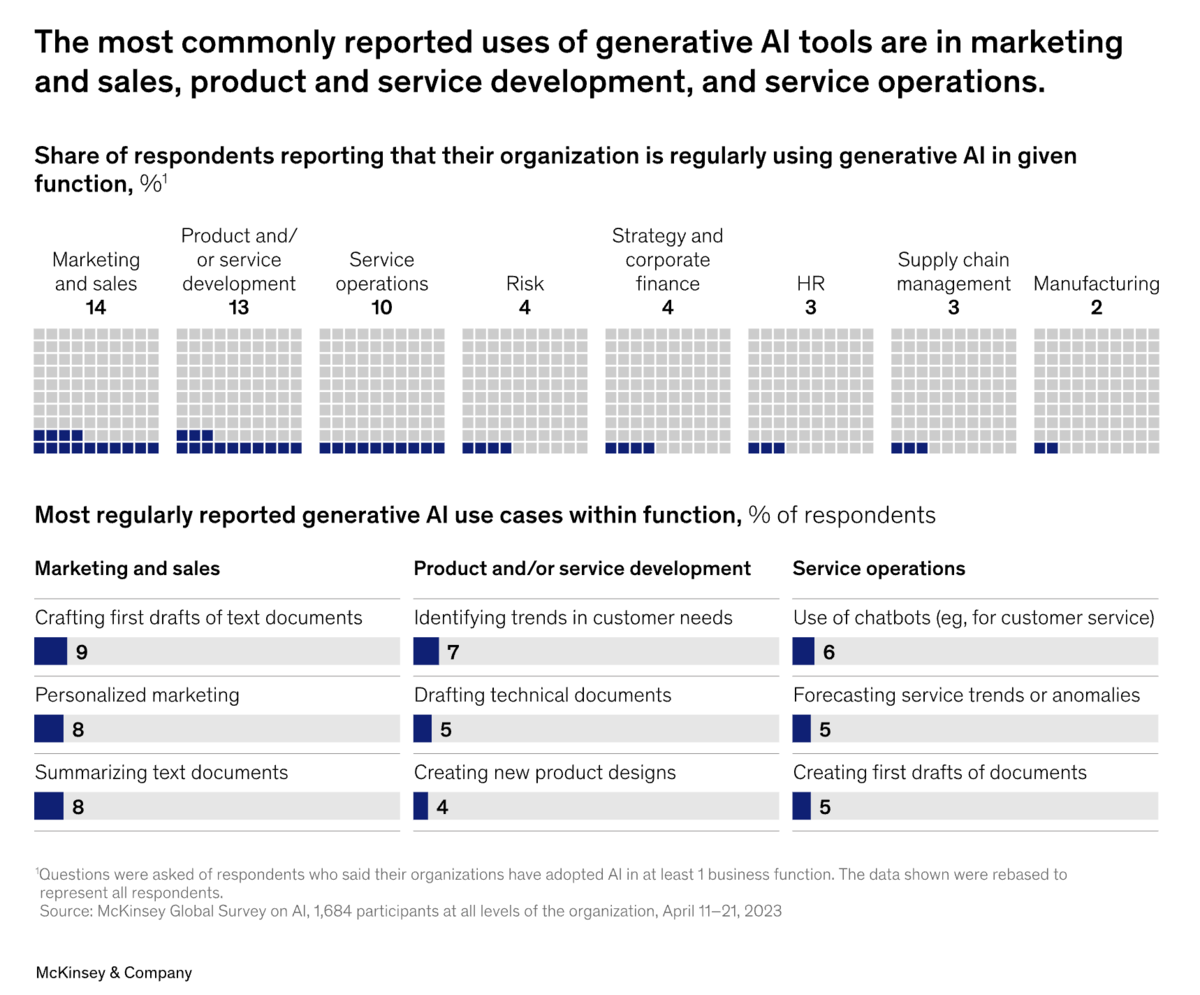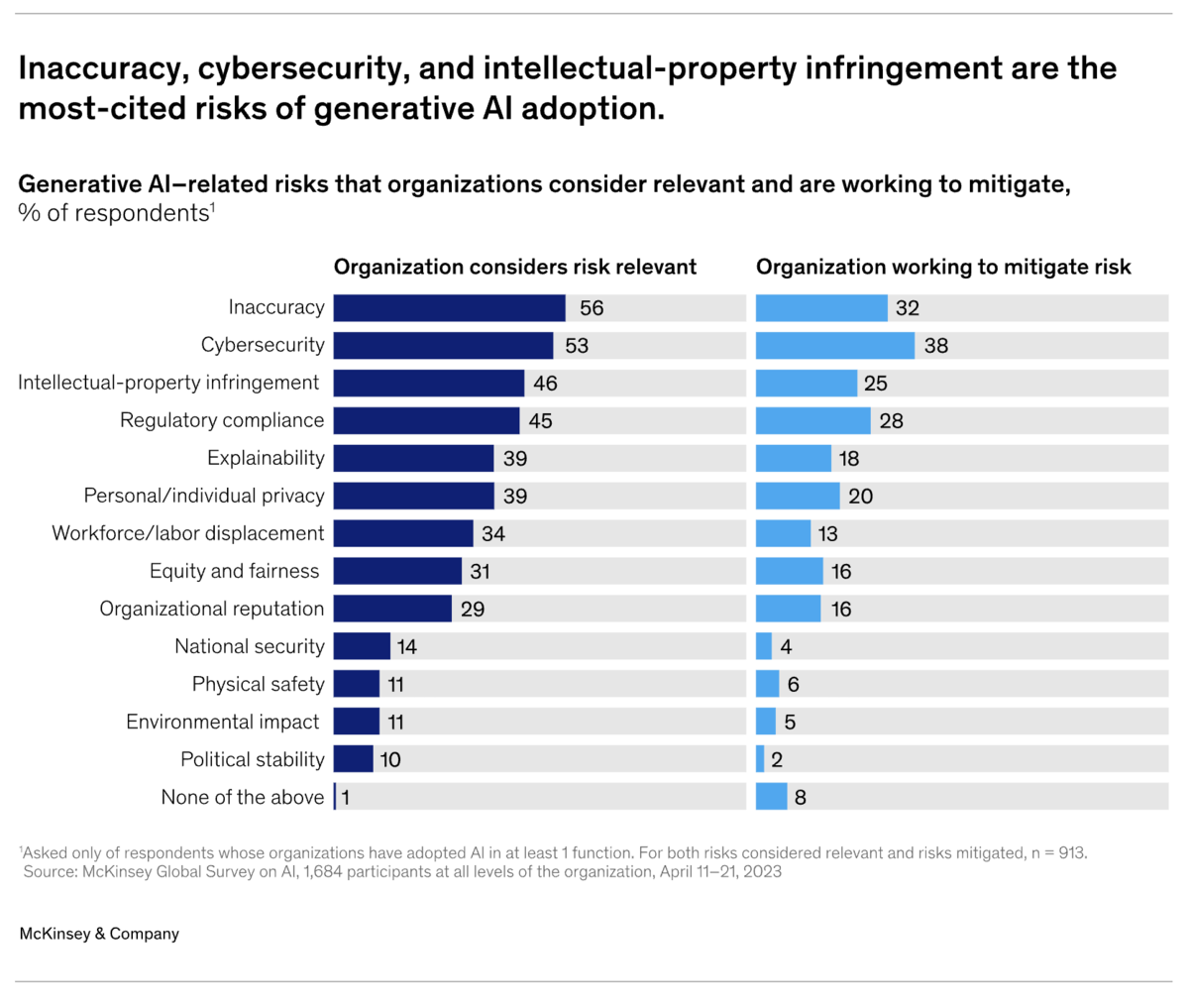A breakout year for generative AI - but how is it being used?
2023 is not just the breakout year for generative AI technology, but has also seen artificial intelligence rise “from a topic relegated to tech employees to a focus of company leaders”.
That’s according to consulting firm McKinsey, which is April conducted a global survey to gauge how businesses around the world were using generative AI a quarter of the way into the year and barely six months on from the debut of ChatGPT.
While 79% of respondents said they’d had some exposure to gen AI, 22% said they were regularly using it in their work, with those working in the tech sector in North America among the biggest adopters so far.
The use cases are the same as with AI in general - businesses are using gen AI systems in “marketing and sales, product and service development, and service operations, such as customer care and back-office support,” McKinsey notes.
In marketing, AI-powered chatbots like ChatGPT are being used for crafting the first draft of text documents, text summaries, and personalised marketing material. Around 10% of respondents were using gen AI for service operations, including chatbots, forecasting services, and drafting documents.

Gen AI is also set to fuel overall investment in AI in the coming years, because managers can directly see the advantages of using it. 40% of those surveyed said their “companies expect to invest more in AI overall thanks to generative AI, and 28 percent say generative AI use is already on their board’s agenda”.
At the same time, businesses adopting gen AI haven’t put policies in place governing its use.
“Just 21 percent of respondents reporting AI adoption say their organizations have established policies governing employees’ use of gen AI technologies in their work,” McKinsey points out.
“And when we asked specifically about the risks of adopting gen AI, few respondents say their companies are mitigating the most commonly cited risk with gen AI: inaccuracy.”
Alexander Sukharevsky, senior partner and global leader of QuantumBlack, AI by McKinsey, says businesses are taking too narrow a view of risks posed by gen AI.
“There is a significant range of risks—social, humanitarian, sustainability—that companies need to pay attention to as well,” he notes.

“In fact, the unintended consequences of generative AI are more likely to create issues for the world than the doomsday scenarios that some people espouse. Companies that are approaching generative AI most constructively are experimenting with and using it while having a structured process in place to identify and address these broader risks.”
The full survey results can be found here. The online survey was in the field April 11 to 21, 2023, and garnered responses from 1,684 participants representing the full range of regions, industries, company sizes, functional specialties, and tenures.
